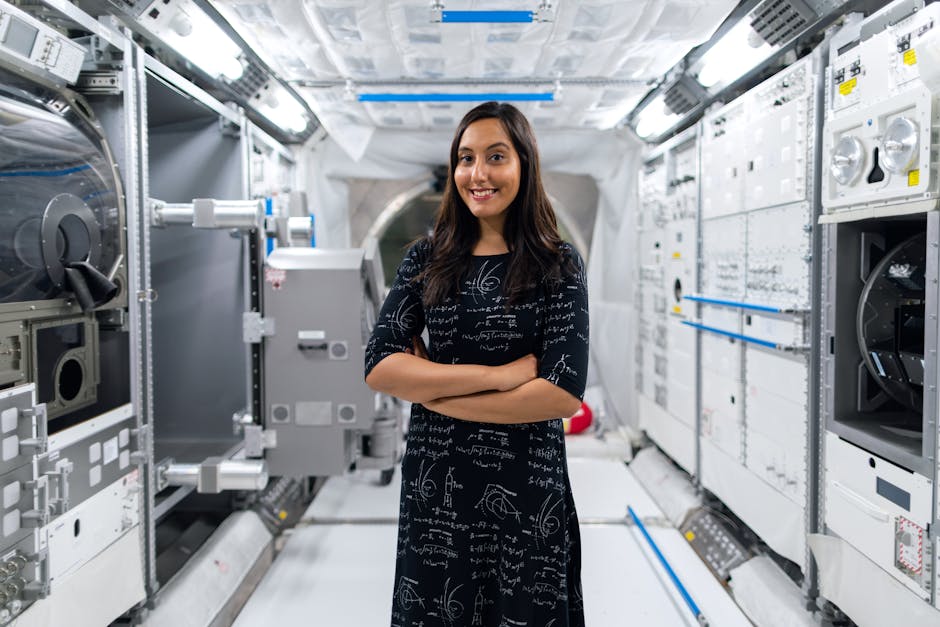The cosmos, a realm of unparalleled beauty and bewildering complexity, beckons humanity towards a deeper understanding of its origins and workings. Yet, this cosmic quest presents substantial hurdles, demanding innovative solutions and unwavering dedication from scientists and engineers alike. This article delves into the multifaceted challenges of space exploration, highlighting the logistical, technological, and philosophical obstacles that continuously shape our cosmic endeavors.
A fundamental difficulty lies in the sheer distance and hostile environment of space. Vast distances, measured in astronomical units and light-years, necessitate immense expenditure of resources and time. Propulsion systems capable of reaching and sustaining velocity in deep space remain a considerable hurdle. Current technologies struggle to effectively traverse the immense voids between celestial bodies, requiring complex maneuvers and long travel times, often exceeding the lifespan of a human crew. Imagine the logistical complexities of providing life support, conducting scientific experiments, and maintaining crew morale over decades-long journeys. The issue is not simply getting to a destination, but maintaining a functional and safe environment for the duration of the mission.
Beyond the distances, the challenges associated with the extraterrestrial environment itself are daunting. Radiation exposure, a constant threat in the vacuum of space, can cause severe health complications for astronauts and damage sensitive equipment. Extreme temperature fluctuations, ranging from frigid cold in the shadow of celestial bodies to scorching heat on the sun-facing side, must be meticulously addressed in the design of spacecraft and life support systems. The lack of atmosphere presents an unparalleled challenge for maintaining a habitable environment for humans. This requires innovative shielding and life support protocols, potentially drawing inspiration from nature’s own adaptations. Furthermore, the sheer emptiness of space presents its own technical difficulties. Navigation, communication, and maintaining precise control over spacecraft in this nearly frictionless environment present unique challenges.
The inherent limitations of current technology pose a significant constraint. Advanced instruments capable of observing distant galaxies and exoplanets are expensive and often fragile, necessitating meticulous design and rigorous testing. Current propulsion methods, while sufficient for reaching near-Earth destinations, struggle with the enormous distances encountered in deep space travel. Miniaturizing scientific instruments while ensuring their sensitivity remains a significant hurdle. The ongoing development of advanced materials and propulsion technologies forms a crucial component of our cosmic quest.
Financial constraints play a crucial role in shaping the trajectory of space exploration. Funding for space research is often dependent on political priorities and economic conditions. Sustained, long-term support is essential to allow for the development and refinement of technology, as well as the meticulous planning and execution of complex missions. This need for consistent funding necessitates a significant commitment from both governmental and private entities. Significant private investment in space ventures is a hopeful sign, but governmental support is still vital for large-scale, long-term projects.
Ethical concerns are inextricably linked with space exploration. The possibility of contaminating extraterrestrial environments with terrestrial microorganisms poses a considerable risk. The potential for encountering unknown forms of life further complicates this aspect of exploration. These dilemmas require extensive scientific debate and the development of strict protocols to avoid unintended consequences. The impact on local ecosystems and indigenous life forms, should we encounter them, is another ethical concern that must be carefully considered.
Furthermore, the immense technical complexity of spacecraft and instrumentation necessitates meticulous design, rigorous testing, and skilled maintenance. Faults in equipment can have far-reaching consequences, ranging from mission failure to significant expenditure of time and resources. Mission control and its reliance on efficient communication systems present another layer of complexity, particularly when dealing with missions that extend across long periods and vast distances.
Data acquisition and analysis represent another crucial challenge. The sheer volume of data returned from space-based observatories can be overwhelming. Developing robust computational infrastructure to process, analyze, and interpret this data is crucial for extracting meaningful insights into the workings of the universe. The complex interpretation of data, including astronomical observations and remote sensing measurements, frequently requires advanced computational models and expert analysis.
Beyond these technical hurdles, the challenges of space exploration often manifest in the human realm. Isolation, stress, and the psychological impact of extended missions necessitate meticulously crafted strategies for managing crew morale and well-being. Space travel introduces unique health concerns related to the microgravity environment, potentially impacting bone density and muscle mass, requiring ongoing research and preventative measures.
Addressing these diverse and intertwined challenges necessitates a collaborative and multidisciplinary approach. International cooperation, fostering partnerships and knowledge sharing, is vital to overcome these obstacles. Investing in advanced technologies and exploring innovative solutions are crucial for future progress. Only through sustained effort, ingenuity, and a commitment to understanding the cosmos can we hope to conquer these challenges and expand the horizons of human knowledge.












